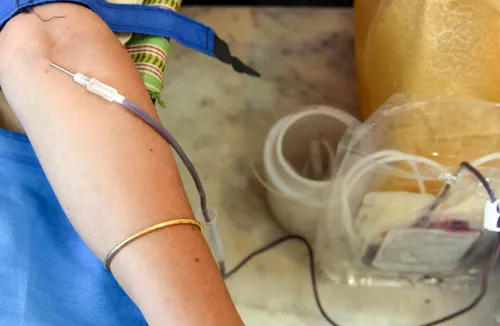IIT Roorkee Scientists Discover Natural Compound to Fight Bacterial Infections

Synopsis
Key Takeaways
- Thymol, a compound from thyme, may help weaken superbugs.
- It enhances the effectiveness of the antibiotic meropenem.
- Thymol disrupts bacterial energy production and outer membranes.
- It generates reactive oxygen species to stress bacteria.
- Further research and clinical trials are needed for validation.
New Delhi, March 27 (NationPress) A research team at IIT Roorkee has uncovered a natural compound that can assist in weakening stubborn superbugs and improving the potency of antibiotics.
The study indicates that thymol—a plant-derived compound commonly found in thyme—may help diminish persister cells associated with the bacterium Acinetobacter baumannii, known for causing enduring and chronic infections in healthcare settings.
Published in the Antimicrobial Agents and Chemotherapy Journal, these findings suggest that last-resort antibiotics like meropenem could be made more effective.
Initial results show that when combined with meropenem, thymol boosts the antibiotic's activity, presenting a potential strategy for addressing persistent infections.
"The capacity of thymol to disrupt bacterial persistence and enhance the efficacy of current antibiotics offers a hopeful path for tackling antimicrobial resistance," stated Prof. Ranjana Pathania, the lead researcher.
"By targeting persister cells, we could potentially improve treatment results for chronic and recurrent infections," she further noted.
The research team discovered that thymol operates through several mechanisms to weaken persister cells. It disrupts bacterial energy production, making survival more challenging. It also damages the protective outer membrane, increasing the bacteria’s susceptibility.
Additionally, thymol produces reactive oxygen species (ROS), stressing and weakening the bacteria while inhibiting bacterial efflux pumps, which could enhance the effectiveness of meropenem.
While these insights are invaluable, further research and clinical validation are necessary to evaluate thymol’s potential in real-world therapeutic contexts.
"Antimicrobial resistance is a significant global concern. This study illustrates how innovative strategies, including natural compounds, can play a role in overcoming persistent infections. It mirrors our institute’s dedication to research that addresses urgent healthcare issues," commented Prof. K.K. Pant, Director of IIT Roorkee.
The upcoming research phase will concentrate on refining the thymol-meropenem combination and assessing its potential through additional studies.
If validated in clinical trials, this method could lead to new strategies for combating antibiotic persistence, providing an extra tool in the battle against antimicrobial resistance, according to the team.










